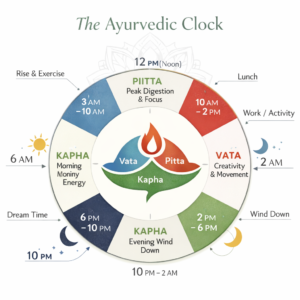What is Ayurveda ? A short introductory video and article about Ayurveda and why I choose to practice it.
Definition of Ayurveda
From an etymological point of view the root of Ayurveda lies the sanskrit words Ayu, meaning life and Veda, meaning knowledge or science. To be more exact :
Ayu = lifespan
Vedha = knowledge
Ayurveda = knowledge of life
Background of Ayurveda
There are no exact dates for the birth of Ayurveda especially as it remained an oral tradition until about 1500-500 BC when the Vedas, a collection of sacred Indian texts were written.
It is estimated that Ayurveda was born more than 5,000 years ago.
Around 500 BC, when the treatises of Caraka, Susruta and Vagbhat were written, Ayurveda reached its apogee and began to travel outside of India, inspiring many of the world’s medicinal systems such as Persian2, Chinese, Tibetan and Greek medicine.
Over the following years, Ayurveda was used, adapted, enhanced and systemised according to the needs of individual civilisations and countries.
Today, Ayurveda is practiced has become one of the most sophisticated natural medicinal system practiced by an estimated 320,000 doctors worldwide. It is recognised by the World Health Organisation (WHO) as an official Traditional Medicine and by the Government of India as one of the two main medical system alongside conventional western medicine.
Purpose of Ayurveda
Ayurveda is a collection of teachings for those who desire to live long and healthy life in order to attain peaceful/harmonious life, wealth and happiness.
In modern terms, we can say that Ayurveda is Natural Medicine to promote a healthy body and disease prevention.
Ayurveda is universal and timeless as its principles are based on the observation of nature itself, which is the same in all ages and all parts of the world.
The main principle of Ayurveda is that of the dosha, the natural forces that maintain or destroy the body. Each of us has a unique combination of these dosha or forces which comes across in our unique physical and psychological make-up. These forces constantly undergo change casing balance and imbalance of the body. Ayurveda teaches us to maintain their balance through appropriate dietary & lifestyle habits.
Treatments are unique to each individual and involved dietary recommendation, lifestyle advice and specific internal and external treatments.
–> Read more articles about Ayurveda in the learning centre
–>Find out your more about your unique constitution with our dosha quiz
–> For more information or questions please contact elena@theayurvedacentre.com







